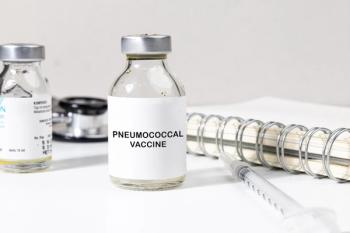
- Drug Topics November 2022
- Volume 166
- Issue 11
Crisis (Not) Averted
It’s too late for retail chain pharmacies to engage in the preventive maintenance that would have spared them the worst of the Great Resignation.
Back in 1981, my new bride and I went to the car dealer in search of our first big purchase. We bought the cheapest car on the market: a beige Datsun 210 for the sum of $4400. Since that monumental occasion, I’ve bought a new vehicle approximately every 10 years—mostly minivans when we had a full-size family.
The last vehicle I purchased was a 2012 Nissan Frontier pickup truck. It has plenty of rust in the bed and a sizable dent in the front where I hit a deer on my way home from work last year. I look at my vehicles with the same affection as I do a wheelbarrow—as a tool to get a job done. My car gets me to work and brings me home, and that’s all I need. But I am meticulous about caring for the operational parts of the vehicle; I get the oil changed on schedule to keep my vehicles performing well.
The money I spend on preventive maintenance is well worth it. I’m a cheapskate, but I gladly lay out the money for inspections, tires, and oil changes. Spending $100 every few months keeps me from spending thousands on major repairs or, even worse, replacing the vehicle.
I wish our chain pharmacies would apply this wisdom to the operations of their stores. The chains have pinched pennies on staffing for so many years that major breakdowns have occurred. Some of the Big 4’s stores can’t open on weekends because of staffing problems. University towns with pharmacy schools were once the holy grail of places for community pharmacists to work. At my first job, one of the pharmacists was putting in his time in rural Pennsylvania to get enough seniority for a job in Pittsburgh. Today, even the university towns are seeing staffing shortages and reduced hours.
My brothers and sisters in community pharmacy have been pushed to their limits. Ridiculous metrics, administering vaccinations, and COVID-19, along with reduced staffing and lower pay, have led to community pharmacists looking for a new nail on which to hang their license. For some pharmacists, the “Great Resignation” would be better described as the “Great Reshuffle.” So many pharmacists have been given the opportunity to work from home, for pharmacy benefit managers or insurance companies, that they have chosen to move off the bench and away from the stress and commotion of the retail environment. I doubt we will ever see them come back.
With a little preventive maintenance, district and regional managers could have averted this crisis. Providing adequate technology, ensuring staffing breaks, eliminating metrics, and—most of all—increasing the number of pharmacy technicians on hand to assist with the workload would have prevented this catastrophe. Because the Big 4 chains neglected preventive maintenance, they are experiencing a major breakdown—much like not changing the oil or rotating the tires on my beloved pickup truck.
The bad news even gets worse: Pharmacy school enrollment is down—way down. Because of the switch to virtual classrooms, current graduates are struggling to pass the North American Pharmacist Licensure Examination. Even new graduates who were easily plucked with big salary offers are declining retail opportunities. Younger pharmacists with families are leaving the long hours on the bench. The very chain pharmacies that were giddy with the “pharmacist glut” 5 years ago are now crying the blues.
One of these retail giants is offering a $75,000 signing bonus at some locations. I’ve surveyed some of my pharmacist colleagues as to whether they would prefer the bonus money or have a guarantee of 2 pharmacy technicians at $18 per hour. All but one said they would prefer the technicians and having a fulfilling job in patient care. This response is a result of the chains’ neglect of the “preventive maintenance” that would have avoided this dire situation.
The chains have no one to blame other than themselves. They had great pharmacists who worked through the COVID-19 crisis with minimal (if any) staffing increases. Chain executives need to increase salaries, significantly increase technician hours, incentivize pharmacists’ efforts, reduce store hours, and develop a caring attitude—much like the one on display in their TV commercials.
Articles in this issue
about 3 years ago
Tackling Pneumonia in the Pharmacyabout 3 years ago
Are Cannabinoids Key to Harm Reduction in Opioid Use Disorder?over 3 years ago
Text Message Reminders Raise Flu Vaccination Ratesover 3 years ago
Keys to Managing Gestational Diabetes in the Pharmacyover 3 years ago
Science Communication Tips for Pharmacistsover 3 years ago
What Do the Midterms Mean for Pharmacy?Newsletter
Pharmacy practice is always changing. Stay ahead of the curve with the Drug Topics newsletter and get the latest drug information, industry trends, and patient care tips.























